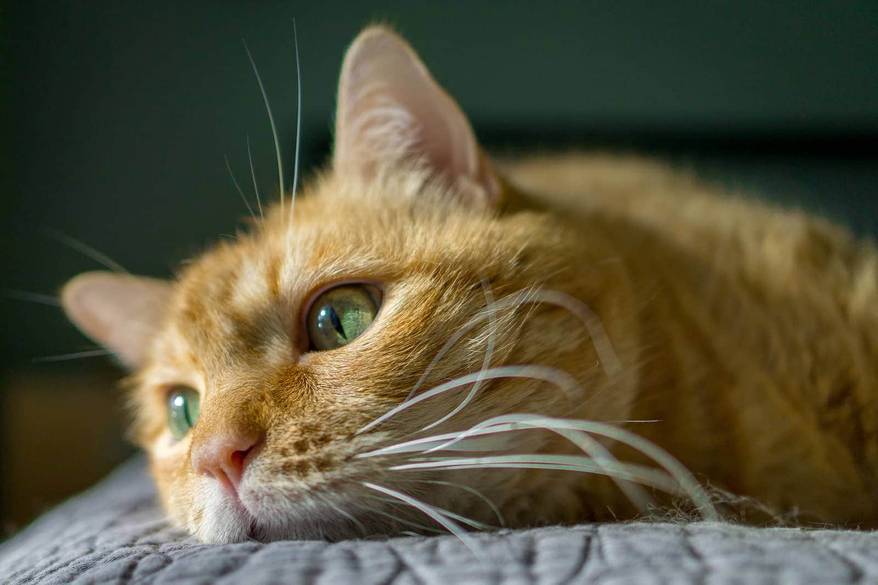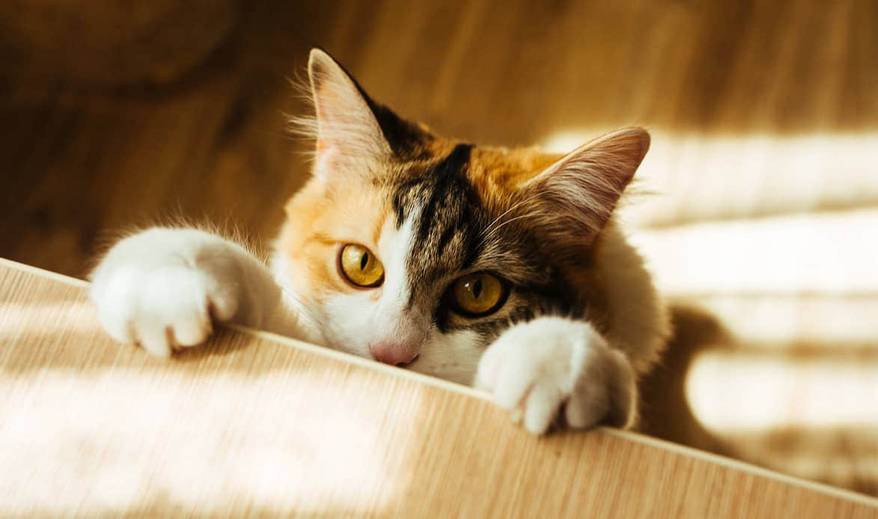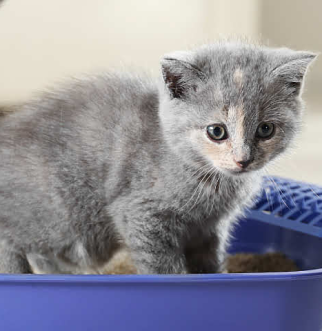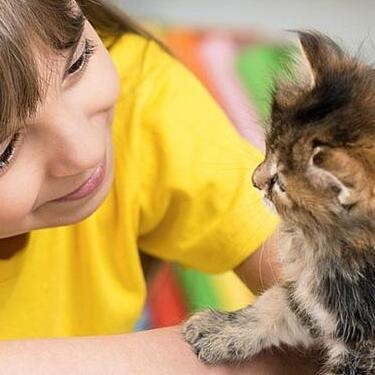
-
Find the right food for your pet
Take this quiz to see which food may be the best for your furry friend.
Find the right food for your pet
Take this quiz to see which food may be the best for your furry friend.
Featured products
 Adult 7+ Perfect Digestion Chicken, Whole Oats & Brown Rice Recipe Dog Food
Adult 7+ Perfect Digestion Chicken, Whole Oats & Brown Rice Recipe Dog FoodScience Diet's breakthrough nutrition supports ultimate digestive well-being & healthy microbiome for dogs age 7+
Shop Now Adult Healthy Cuisine Roasted Chicken, Carrots & Spinach Stew Dog Food
Adult Healthy Cuisine Roasted Chicken, Carrots & Spinach Stew Dog FoodDelicious roasted chicken paired with tender vegetables in a succulent stew
Shop Now Small & Mini Savory Stew with Chicken & Vegetables Dog Food
Small & Mini Savory Stew with Chicken & Vegetables Dog FoodA delicious complement to the nutrition of Science Diet Small & Mini 7+ dog food
Shop NowFeatured products
 Adult 7+ Tender Tuna Dinner Cat Food
Adult 7+ Tender Tuna Dinner Cat FoodWith delicious chunks in a decadent gravy
Shop Now Adult Savory Entrée Can Variety Pack Cat Food
Adult Savory Entrée Can Variety Pack Cat FoodPrecisely balanced nutrition with the delicious taste of savory minced chicken to help fuel the energy needs of cats during the prime of their life
Shop Now Adult 7+ Senior Vitality Chicken & Vegetable Stew Cat Food
Adult 7+ Senior Vitality Chicken & Vegetable Stew Cat FoodImproves Everyday Ability to Get Up & Go
Shop Now -
Dog
- Dog Tips & Articles
-
Health Category
- Weight
- Food & Environmental Sensitivities
- Urinary
- Digestive
- Joint
- Kidney
-
Life Stage
- Puppy Nutrition
- Adult Nutrition
- Senior Nutrition
Cat
- Cat Tips & Articles
-
Health Category
- Weight
- Skin & Food Sensitivities
- Urinary
- Digestive
- Kidney
-
Life Stage
- Kitten Nutrition
- Adult Nutrition
Featured articles
 Do Dogs and Cats have Belly Buttons?
Do Dogs and Cats have Belly Buttons?Learn whether cats & dogs have belly buttons like humans, what the function is, and if there are any health concerns associated with it.
Read More Why Are Dogs and Cats So Cute?
Why Are Dogs and Cats So Cute?If waggy puppy dog tails and furry kitten yawns make you swoon, you're not alone. Why are cats so cute? And, dogs too! Let's find out!
Read More Does My Pet Hate Me?
Does My Pet Hate Me?Learn tips for bonding with your pet if you've ever thought, 'My dog doesn't like me, or 'Why do I have a standoffish cat?'
Read More -


Metabolism refers to the complex chemical processes in the body that break down food (especially protein, carbohydrates and fat) to yield energy. The average cat metabolism can be affected by a multitude of factors, such as hormone levels, age, neuter status, illness, certain diseases, physiological states (such as pregnant or nursing), meal plan and exercise. To understand how a feline metabolism can shift continue reading.

Metabolism Fluctuates With Age
An understanding of cat metabolism and how it is impacted by life stages, food, exercise and neutering status can help cat parents understand the importance of providing proper nutrition and daily activity to feline family members.
During their first year, kittens grow a lot. Cat metabolism is very high during the kitten phase, and a complete and balanced kitten food such as Hill's® Science Diet® Kitten Healthy Development, is recommended. After your cat is spayed or neutered, your veterinarian might recommend decreasing the amount of food you feed her, as it is suspected these procedures reduce a cat's metabolic rate. If your cat is spayed or neutered before turning one, then kitten food should still be fed.
Once your cat is fully grown (approximately one year) she can be slowly transitioned to an adult formula food. Since it is much easier to prevent obesity than to reverse it, yearly veterinary examinations and weight assessments are important. Your vet will make suggestions if any meal plan changes are needed. Your cat's vet can recommend food based on her age and the American Animal Hospital Association's Body Condition Scoring, a numerical assessment that helps you to visual classify your cat as underweight, overweight or normal/ideal.
Particular care and attention is needed when your cat is middle-aged (4 to 9 years old). During this period, her metabolism slows and her caloric needs decrease. Pet parents need to be extra vigilant in monitoring their cat's weight and must provide daily exercise and activities to keep their cats mobile.
As cats enter their senior years, their metabolic rate and energy requirements once again increase. At this stage, preservation of muscle mass is very important. Feeding a specially formulated food for your senior cat, such as Hill's® Science Diet® Adult 11+ Indoor Age Defying Cat Food, provides her with a high-quality and easily digestible protein source.



Tasty Tips
Metabolism's Tie to Overall Health and Weight
Professional nutritional guidance and an awareness of your cat's metabolism speed are crucial, since both dictate her weight and overall health. Cats possessing a slower metabolic rate are predisposed to obesity. According to the Association for Pet Obesity Prevention, 60 percent of cats in U.S. households are considered clinically obese. Excessive weight is associated with many health issues including diabetes mellitus, arthritis, cancer, respiratory disease and bladder stones. Although the irresistible pleas from a furry face are admittedly hard to ignore, the cause for the obesity crisis is primarily in the overfeeding hands of pet parents.
Ideally, providing your cat with an appropriate amount of calories and exercise will help to ensure that she maintains a healthy body weight. If your vet has informed you that a weight-loss program is needed for your cat, they can take measures to help your cat slowly and safely achieve an optimal weight.
It is very important to seek professional veterinary advice before initiating a weight loss program for your cat. Dramatic and rapid weight loss in cats can result in life threatening hepatic lipidosis, or fatty liver disease. If your cat is overweight and has not eaten in more than a day, contact your vet immediately.
Cats who have had unsuccessful weight-loss efforts on reduced calorie foods are good candidates for another approach. Hill's® Prescription Diet® Metabolic Feline naturally works with your pet's unique metabolism, and helps avoid weight regain after weight loss. It also helps regulate appetite and spare lean body mass. Over 80 percent of cats who participated in a home study lost weight on Hill's® Prescription Diet® Metabolic Feline. Extra weight can impact your cat's quality of life and relationship with the family because it can reduce play time, impact mobility and affect your cat's lifelong general health.
Fluctuations in Weight and How They Relate to Metabolism
It has already been established that cats with a generally slower metabolic rate will burn fewer calories and store more fat than cats with a faster metabolism. There are several medical problems that impact your cat's metabolism and result in weight loss or weight gain. A sudden change in weight is often what reveals an issue by prompting a pet parent to bring their cat to the vet:
- Hyperthyroidism results in an increased metabolic state, with cats losing weight despite normal or often increased appetites.
- Diabetes can cause rapid weight loss and blood sugar imbalances and is more common in overweight cats, writes the Cornell Feline Health Center.
- Cancer cachexia is a common and complex result of cancer that causes a cat to lose fat and muscle at equal rates, explains PetCoach. Since cancer can often have a gradual onset, this disturbance in a cat's metabolism can serve as the first warning sign of a problem.
Staying in tune with your cat's metabolism is an intricate process that is important for cat parents as your cat's weight serves as a gauge of wellness. Bring your cat to the vet for frequent checkups as she ages and keep a close eye on her appetite.


Mindy Cohan is a veterinarian in the Philadelphia area and a graduate of the University of Pennsylvania School of Veterinary Medicine. She has a rescue dog named Jem. Mindy enjoys hiking with Jem while listening to podcasts about the American Civil War and Abraham Lincoln.
Related products
Related articles

Cats are naturally very clean and chances are your kitten will already have learned how to use the litter box from her mother before she comes to live with you.

How do you get a cat to lose weight? Learn all about cat foods for weight loss, including how to choose weight control cat food and exercise tips.

What is the best food for an overweight cat? Learn all about weight control food for cats, including what's in it and how it works.

Discover how to train your cat, starting with very basic first steps that both reward good behavior and discourage the bad.

Put your cat on a diet without them knowing
Our low calorie formula helps you control your cat's weight. It's packed with high-quality protein for building lean muscles, and made with purposeful ingredients for a flavorful, nutritious meal. Clinically proven antioxidants, Vitamin C+E, help promote a healthy immune system.
Put your cat on a diet without them knowing
Our low calorie formula helps you control your cat's weight. It's packed with high-quality protein for building lean muscles, and made with purposeful ingredients for a flavorful, nutritious meal. Clinically proven antioxidants, Vitamin C+E, help promote a healthy immune system.

